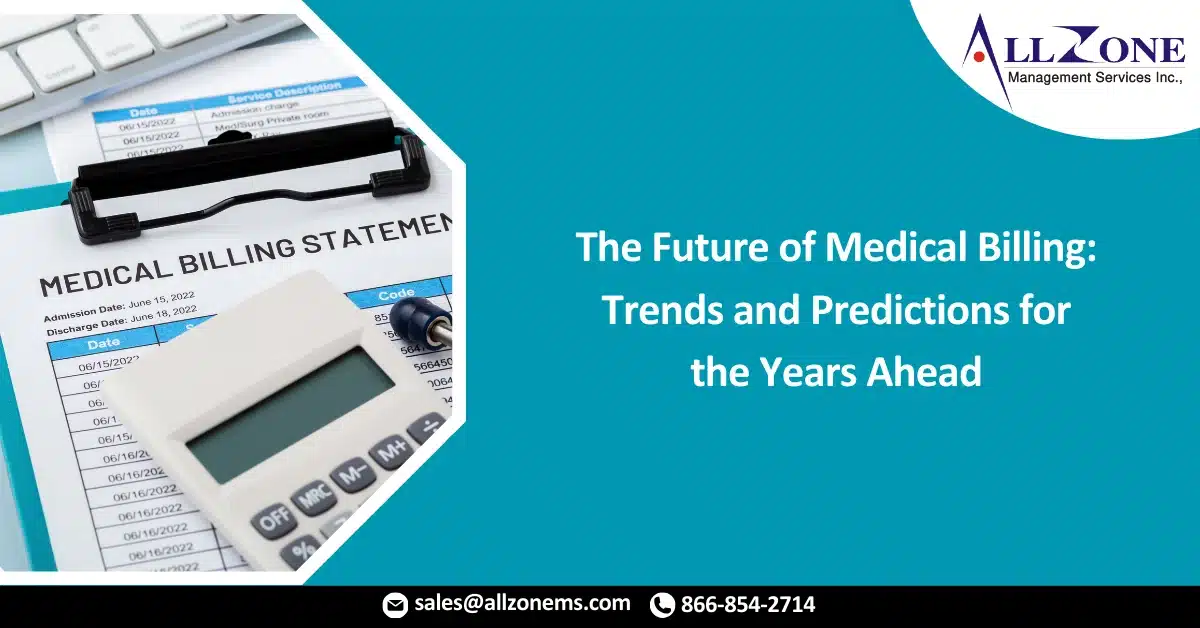The medical billing industry is constantly evolving, with new technologies and trends emerging all the time. As the healthcare industry continues to change, so too will the way medical billing is done.
Here are some of the trends that are expected to shape the future of medical billing:
The increasing use of electronic health records (EHRs):
EHRs are becoming increasingly common in healthcare settings, and this is having a major impact on the way medical billing is done. EHRs can help to streamline the billing process by automating many of the tasks that were previously done manually. This can lead to faster and more accurate billing, which can save healthcare providers time and money.
The growth of cloud-based medical billing solutions:
Cloud-based medical billing solutions are becoming increasingly popular, as they offer a number of advantages over traditional on-premises solutions. Cloud-based solutions are more scalable and easier to use, and they can also help to improve security and compliance.
The rise of artificial intelligence (AI):
AI is beginning to be used in medical billing in a number of ways, such as automating tasks, identifying potential fraud, and providing insights into patient trends. As AI continues to develop, it is likely to play an even greater role in the future of medical billing.
The increasing focus on patient satisfaction:
Patient satisfaction is becoming increasingly important in the healthcare industry, and this is having a ripple effect on the medical billing process. Healthcare providers are under pressure to improve patient satisfaction, and this is leading to a focus on making the billing process more efficient and user-friendly.
These are just a few of the trends that are expected to shape the future of medical billing. As the healthcare industry continues to evolve, so too will the way medical billing is done. By staying up-to-date on the latest trends, healthcare providers can ensure that they are prepared for the future of medical billing.
More Industry Predictions
In addition to the trends mentioned above, here are some additional predictions for the future of medical billing:
The use of blockchain technology
Blockchain is a secure and transparent way to store data, and it has the potential to revolutionize the way medical billing is done. Blockchain could be used to track patient records and payments, which could help to reduce fraud and improve efficiency.
The development of new payment models
The traditional fee-for-service payment model is under increasing pressure, and this is leading to the development of new payment models. These new models, such as value-based care and bundled payments, are designed to reward providers for providing high-quality care. This could have a significant impact on the way medical billing is done, as providers will need to be able to track and report on the quality of care they provide.
The growth of telehealth
Telehealth is the use of technology to provide healthcare services remotely. Telehealth is becoming increasingly popular, and this is having a ripple effect on the medical billing process. Healthcare providers who offer telehealth services need to be able to bill for these services in a way that is compliant with regulations.
The future of medical billing is uncertain, but it is clear that the industry is undergoing a period of significant change. The trends and predictions outlined above provide a glimpse into what the future may hold. By staying up-to-date on these trends, healthcare providers can ensure that they are prepared for the future of medical billing.

